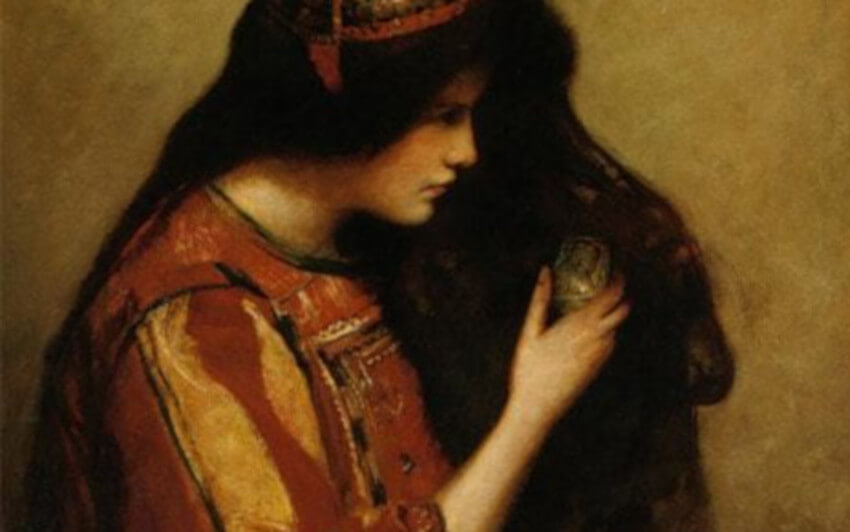Readings: Isaiah 43:16-21, Psalm 125, John 12:1-8,
and “The Heavens Torn Apart” – John Terpstra
Joanna Manning
The readings today are full of the promise of restoration. Isaiah has rivers gushing in the desert; the psalmist sings of those who sowed with tears reaping with joy and carrying home their sheaves; Paul tells us to forget what lies behind and strain forward to what lies ahead; and in John’s gospel, Mary of Bethany pours out a jar of costly ointment which fills the whole house with its fragrance.
And So we read about a God who breaks boundaries, does new things, a God of surprises, and a God of extravagant love! This is the thread that runs like gold through the readings of today, culminating in John’s account of the anointing of Jesus’s feet by Mary of Bethany then drying them with the strands of her lustrous long hair.
So in this gospel, after the raising of Lazarus, Jesus has returned again to the house at Bethany. It is possibly his last stop before he enters Jerusalem for the Passover. Jesus feels safe here. Elsewhere Jesus has spoken wistfully about the birds of the air having a nest to shelter themselves, but he has nowhere to lay his head. But it does appear that he was a familiar and much loved guest here. It was a safe refuge, possibly the closest Jesus came anywhere to feeling at home and amongst friends.
And this household is not your typical patriarchal family. In fact, this household at Bethany breaks the boundaries of traditional family. No parents, no children, just siblings and friends. A house with no hierarchy of roles. And after the resurrection, scholars think that this family may well have formed the core of a house church community led by the three siblings.
Yes – Martha has previously complained about being abandoned to cope with the pot and pans in the kitchen. But she and her sister are both engaged in theological conversation alongside the other disciples. It is Martha who makes at the confession of faith before the raising of Lazarus, saying to Jesus – “I believe you are the Messiah, the Son of God who is to come into the world.” Many ? that this is John’s equivalent to Peter’s confession in the gospel of Matthew that: “You are the Christ, the Son of the Living God.”
But today’s gospel is not about Martha or Lazarus, but features her sister, Mary. Who is Mary of Bethany? Well – she one of a number of women disciples who take centre stage as Jesus moves into the key events of his death and resurrection. But history has not been kind to her. In order to downplay the role of women in the gospels, in the sixth century.Pope Gregory the First deliberately collapsed at least three women into one person, whom he labelled a repentant sinner: one of the roles for women that the Roman church has always approved of. And so for centuries of history, Mary is safely behind the veil as another repentant sinner.
But Mary of Bethany is most definitely not the repentant sinner at the house of Simon the Pharisee, neither is she to be folded in with Mary Magdalene. Although it occurred to me as I was preparing for today’s sermon that Mary Magdalene, who was part of a group of women travelling to Jerusalem for the Passover with Jesus, could well have been present at this gathering at Bethany.
Sitting amongst the disciples at the feet of Jesus, Mary grasps the meaning of the message that the men did not – Jesus is teaching them about his forthcoming death and burial. But in addition, in the mind and heart of Mary, there is more: in her there burns an extravagant and fearless love. So she anoints Jesus’ feet with a costly perfumed oil normally used to anoint the body after death, and dries them with her long and lustrous hair. Mary alone has grasped the deep significance of this final stopover on the way to Jerusalem. Mary identifies with this to such an intimate degree that she manifests the same disposition of total self-giving that Jesus is about to manifest on the cross.
There is also a lovely frisson of the erotic in the way Mary pours out the costly perfume and then dries Jesus’ feet with her hair. This power of an erotic gesture that arouses an wild life energy that touches the deepest self is startling and unrestrained. But Jesus, who has never recoiled from any woman’s touch, does not shrink from the tenderness and intimacy of Mary’s gesture.

But as the rich aroma of the perfume spreads through the house, the disciples are startled and shocked. It is Judas who finds the words of condemnation. Judas – the penny pincher, the disciple who will sell Jesus for a mere thirty pieces of silver, and who helps himself to the money in the common purse. This Judas who has so many counterparts in today’s world. Like Doug Ford who claws back benefits from the poor and rewards himself with an extravagantly converted vehicle to drive around in . Or Donald Trump, so self-serving and stingy that he won’t pay even the minimum of tax he owes, but rewards and gratifies himself with his lavish lifestyle. The Fords and Trumps, and the other Judases of this world will never understand this kind of extravagant love.
Because Mary’s extravagant, fearless love breaks open the boundaries of the conventional and safe. It risks the unconventional; it longs to dance with roses as well as march for bread. Like the risky love of a Jacinda Ardern, Prime minister of New Zealand, who dares to don a hijab in solidarity with mourning Muslim women, inspiring many other women in New Zealand to do likewise. And who embraces these newcomers who don’t fit the profile of the safe immigrant who settles in white NZ. “They are us” she proclaimed.
I’m also think of the risky and courageous love of Rosa Parks who planted her beautiful black body in a so-called illegal place in the bus and then refused to move.
And I think of the other bold, outspoken women in the gospels who were welcomed by Jesus: the woman at the well in Samaria, the bent daughter of Abraham who trespassed into the men’s section in the synagogue, the Syro-Phoenician woman who argued with Jesus and convinced him to cure her daughter.
So this story of Mary of Bethany brings us full circle to the final Sunday of Lent before we enter into Holy Week. At the beginning of the series, on the First Sunday of Lent, Satan has tempted Jesus to an extravagance of sorts: throw yourself off the temple and the crowds will flock to you as a miracle worker. This temptation fits well with the hyper-individualism of the consumer culture, so filled with invitations to self – promoting extravagance. “You DESERVE this luxury! If you carry this or that pricy purse, everyone will want to be your friend! YOU are the star of your own life! It’s all about ME FIRST…
Jesus utterly rejects Satan’s invitation and for the rest of Lent, the gospels show us a different kind of extravagant love: love lavished not on the self, but on the other. On the second Sunday, Jesus offered Jerusalem one more chance to allow him to show the love of a mother hen who will shelter her brood against all comers. On the third Sunday we saw God the gardener who is prepared to take yet one more risk and pour rich soil onto a stunted fig tree. And last week, we witnessed the extravagant love of a parent throwing a feast to honour the return a beloved but wayward child who had wandered far off the straight and narrow.
And next Sunday, Palm Sunday, we comes full circle to a scene related to the temptation of the First Sunday. Jesus’ entry into Jerusalem is greeted with the apparent extravagant love of those who threw their cloaks down to form a triumphant procession to accompany him. Yet this love melts away as soon as their Messiah refuses to work miracles, restore Jerusalem to its glory and crown himself ruler. They would have loved Jesus to throw himself off the temple.
But the women disciples understand what’s really going on. They keep their risky and courageous watch on that horrible hill of death to the end, and then witness to the new beginning at Easter.
So how are we, here and now to wall the way of extravagant and costly love? I’m aware that I’m preaching to the converted here at Holy Trinity, where people are already engaged in so many public, courageous acts of social justice. Today’s gospel invites renew and extend ourselves in love.
Last Monday, a report commissioned by Environment and Climate Change Canada said that Canada is warming at twice the rate of the rest of the world. One of my friends on Facebook posted an excerpt from one of Joanna Macy’s books. I quote:
It is love, extravagant and risky love, that will heal and change the world. I am sharing all this with you right now in order to encourage you to step into activism and leadership not as a duty but as a love affair. Nothing promotes radical transformation as much as love. And who is the affair with? It is with life itself: with Gaia, with the natural world, with the promise of a future. It is also a love affair with your own highest potential.
We are given this incredible razor’s edge of possibility, where we’re totally in the moment together, not distracted by wondering whether we’ll fail or succeed in transforming the world. I’m not going to ask for that kind of assurance. The strength of uncertainty is to be fully present. In this present moment, facing this unrepeatable challenge of climate chaos, we can feel we are being joined by both those who have gone before and those who will come after. Our ancestors have brought us to the Great Turning, and future generations are here as well by virtue of their utter dependence upon our response. Their presence expands the community that opens to us now and invites us into deep time. It’s the sweetest thing that we don’t even have to know how all the gifts—seeded by our ancestors and evoked by the future ones—can pour through us. These gifts are not our personal property, nor meant for the separate self. They come through now with love for the sake of Life itself.
So now I’m inviting everyone to share a Mary of Bethany moment – to take some fragrant oil and spread it on your hands or face. Breathe in the fragrance as we begin to gather around the table of bread and wine, where there are roses as well as bread. And we go forth from here singing, in order to march on with ‘Bread and Roses’ toward the great turning of love.






